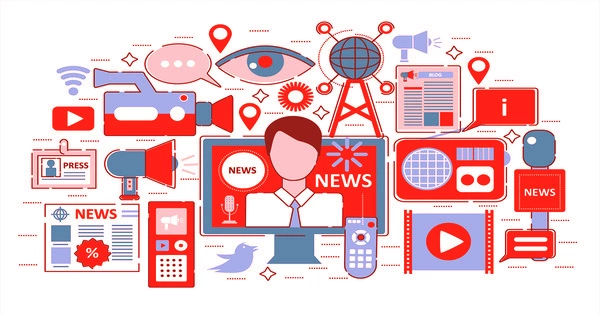TV is extremely important in the formation of a society. We can’t deny that television has had such an impact on the world’s societies. To begin, we must define the media. TV is a source of information or communication, and media has a huge impact on everyone’s lives. Media has become an extremely important part of our lives in today’s modern society. Its mission is to inform, educate, and entertain the public.
I believe that television has a minor impact on our lives today. It has a significant impact, but it is not the most important. The vast majority of the world’s population, particularly in developing countries, does not own a television set. Watching television is, therefore, a luxury. It is in these areas that the statement does not apply at all.
In America, however, the most popular pastime for the average citizen is watching television. On average, two hours per day, more on weekends, are spent in front of the television. Other developed countries, such as Japan, are experiencing a similar trend. However, in a developed country like Malaysia, where the average person spends an hour or so a day passively being entertained by this medium, the impact is felt less strongly.
TV serves as a link between governing bodies and the general public. It is a powerful and adaptable tool that has a large influence on the public. TV is the voice of the voiceless and a powerful force in nation-building. However, while media has some positive effects on people, it also has many negative effects on people. For example, disrespect for life, having a negative influence on children, and intentionally injuring celebrities.
In this fast-paced, modern world, there are other competing demands on one’s time. Even in poor countries, work consumes a large portion of a person’s time as he struggles to make ends meet on a daily basis. Children are frequently coerced into working part-time or full-time to help their families survive. Middle-class people in many developing countries, such as China and Malaysia, spend a large portion of their time working to pay bills such as utilities, housing mortgages, and provisions. Children are also caught up in the rat race. Keeping up with studies, homework, and parental expectations at school is a constant struggle. Watching television is consigned to what spare time people have, usually not more than an hour a day except during weekends.
Nonetheless, despite the limited time available for television, whatever is broadcast from the box has an impact. This is especially true for impressionable young minds, as well as for American children who have less homework and spend more time in front of the television. The messages on the screen may have a negative impact on those children. Advertisers attempt to persuade them to purchase goods and toys that are either undesirable or beyond the parents’ financial means. They may also enjoy imitating the actions and antics of fictional heroes such as the ‘Ninja Turtles’ or ‘Power Puff Girls.’ Children have been known to injure themselves while attempting to emulate their idols.
Advertisers use persuasive power to persuade viewers to buy products or services or to adopt certain lifestyles. This increases the demand for fashionable goods and services. Although television has a significant impact on consumer culture, the values it promotes may be undesirable. Dubious ethical values such as liberal sex and violence would have an impact on young, impressionable, and uneducated people. Thankfully, surveys have confirmed that most of what is shown on television is not true.
Knowing parents, teachers, and law enforcement officers try to combat these pernicious influences. There is limited time for watching television, but its impact can be significant. The forces of good will attempt to channel the desire to watch television into more educational programs, healthy dramas, or game shows. Other media, such as mobile phones, radios, and computers, compete for a person’s attention. Other activities consume a person’s time.
The majority of people on this planet will have access to television. However, they will be engrossed in a variety of other activities such as work or alternative leisure, which will mitigate the influence of television. Television has a significant influence, but it does not have a large impact on modern life.
















